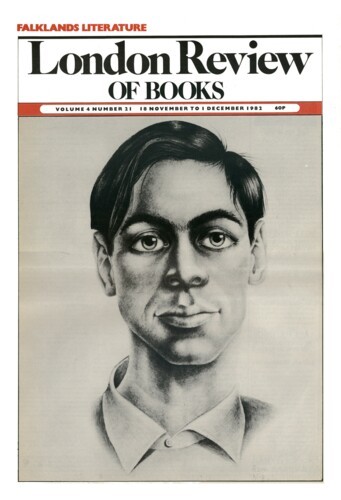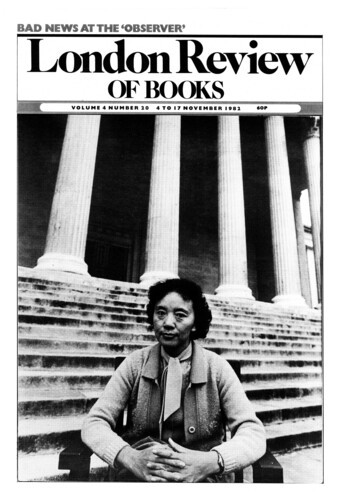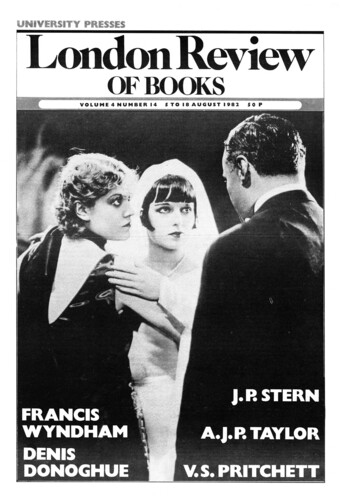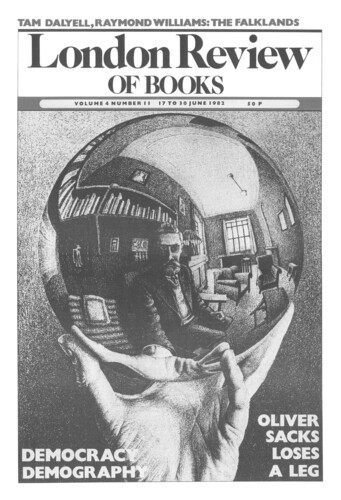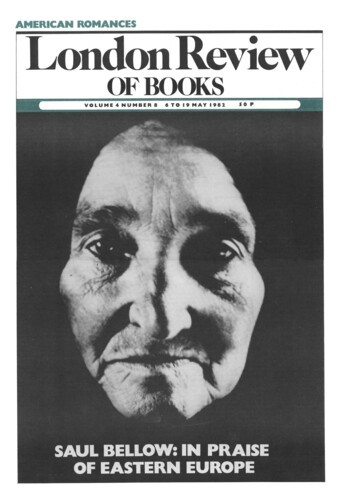Diary: From Nuclear Bombs to Samuel Johnson
A.J.P. Taylor, 18 November 1982
The public opinion polls telling us which political party will win the next general election are rarely right and I don’t much care whether they are right or wrong. The census every ten years of film critics naming the world’s ten best films is a different matter and stirs my zest for controversy. The most recent list has just been published and I am glad to report that it contains no film less than 19 years old. The critics are becoming as conservative as I am, though they do not show this with some of the films they have recently recommended. I will not mention any that would have fallen under my ban except to remark that, in my opinion, neither persistent sexual intercourse nor lesbianism is a suitable subject for general exhibition.
